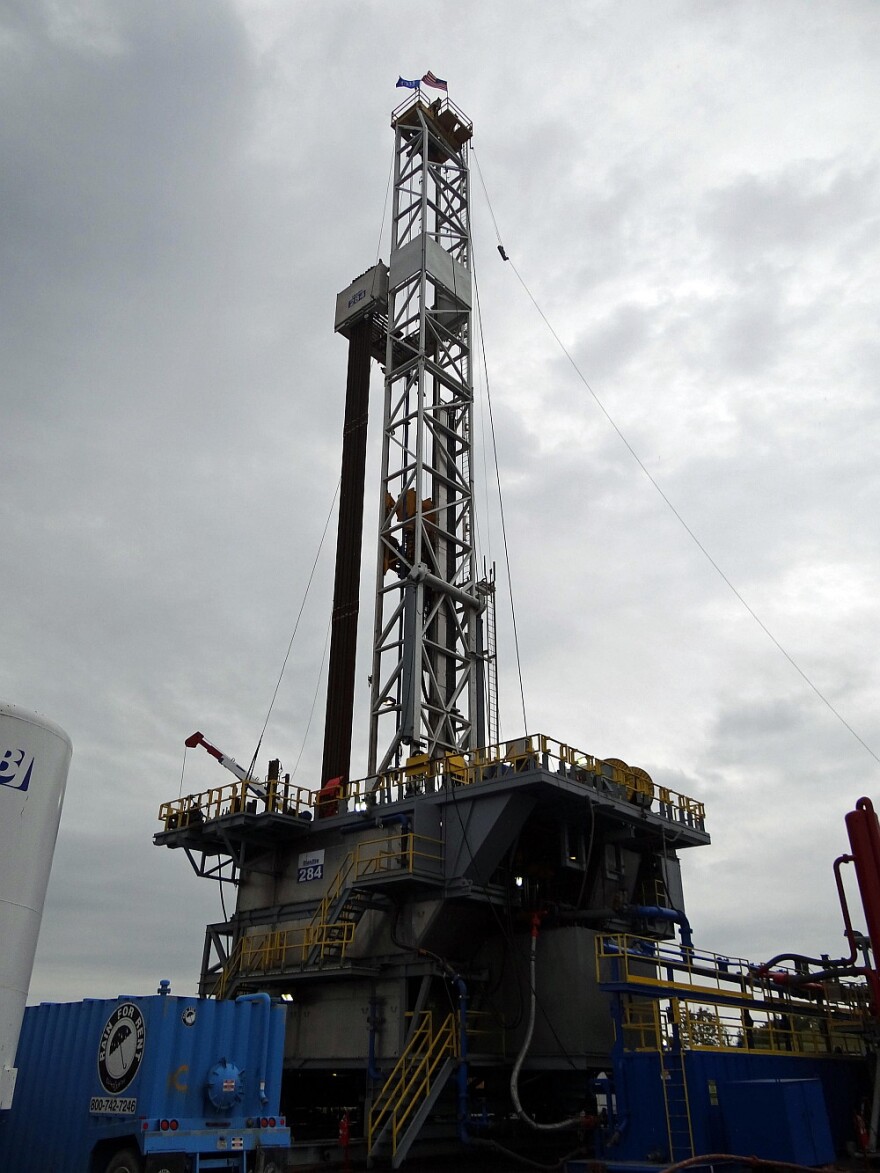Hydraulic fracturing, or fracking, is a relatively new technology. It involves drilling horizontally through thousands of feet of shale and blasting the shale with water, sand and chemicals to release natural gas. The state’s Mining and Energy Commission is coming up with new regulations for the gas industry, and revisiting some old ones. Among the most contentious regulations are those for what’s called forced or compulsory pooling.
The laws regarding compulsory, or forced, pooling have been around since 1945 and were originally written with loose gas or oil in mind, not fracking. Say two neighbors have a field of loose gas beneath their properties. If neighbor A puts down a vertical well, he will suck out neighbor B’s gas, too, as it flows through the reservoir rock. Compulsory pooling allows neighbor B to force neighbor A to bring him into the production unit so he can share in the profits.
“Compulsory pooling was there to protect one landowner from having his or her energy resources or minerals removed from the ground by someone adjacent in another property,” explains Jim Womack, chair of the Mining and Energy Commission.
One challenge before the state is how to make old laws concerning forced pooling compatible with new technology. Wells that require hydraulic fracturing do not work like oil and gas wells. The whole point of hydraulic fracturing is to release gas that is trapped in rock and won’t flow. So compulsory pooling in this new context could mean the state could force fracking onto someone whether they want it or not.

Ed Harris owns a farm in Lee County and doesn’t want anything to do with fracking. The farm has been in his family for generations.
“My yard is usually full of squirrels, especially early in the morning and late in the afternoon,” he said while giving a tour of his farm. “There’s gobs of birds, this area here, just off the yard here, where you see the salt block sitting there. I have anywhere from two to twenty deer at a time.”
The idea that the state could force Harris or anyone else into hydraulic fracturing angers him on principal. Mindful of the wildlife on his property—including deer and squirrels—and the 150-year-old hardwoods, he’s worried that hydraulic fracturing could damage the well water that supports so much of the life on his farm. But it’s not just animals that use it; he drinks from the well too.
“It’s everyone’s dream to have a well like the one I have. It’s a hundred and ninety-eight foot deep,” he explains. “Once we deplete that, there’s no way to replace it. That’s one of the big problems. And they think they turn on the tap and that water’s always going to be there. What do you do when it’s not? You can’t drink oil. My land belongs to me. It does not belong to the state of North Carolina. My land is an extension of my living room. This is my home. No one has a right to invade my home.”

In 1939, the U.S. Supreme Court ruled the state could use its police powers to regulate the orderly extraction of gas in order to prevent waste. Compulsory pooling allows any one well to be drilled at a longer horizontal distance, reducing the number of well heads as well as the cost of production for gas operators. Some see compulsory pooling not as a threat to private property rights, but as a way to enforce them.
“The reason compulsory pooling is important is because we respect constitutional rights that land and mineral rights owners have to pursue happiness,” says Mining and Energy Commission chair Jim Womack.
“If you are denied the opportunity to extract those minerals because you have a landowner that’s on another side of you that chooses not to participate in oil and gas drilling, then you are being denied that right. Compulsory pooling helps to resolve that. So that’s kinda why we are leaning towards continuing or sustaining compulsory pooling in North Carolina so that no one is denied that right.”
Womack insists that the state will try to respect the wishes of any person who does not want hydraulic fracturing on their land. He adds that if a person’s property is forced into a production unit, he or she will be compensated fairly. The next meeting of the Mining and Energy Commission’s Compulsory Pooling Study Group is on Friday in Sanford.
LEARN MORE:
- How fracking works: This interactive feature by National Geographic shows the hydraulic fracturing process in detail
- A video explaining compulsory pooling
- View agendas and future meeting dates of the Mining and Energy Commission Compulsory Pooling Study Group
If your neighbors want to frack their land, should you be forced to frack yours too? Share your thoughts with us in the comment section or on our facebook page.








